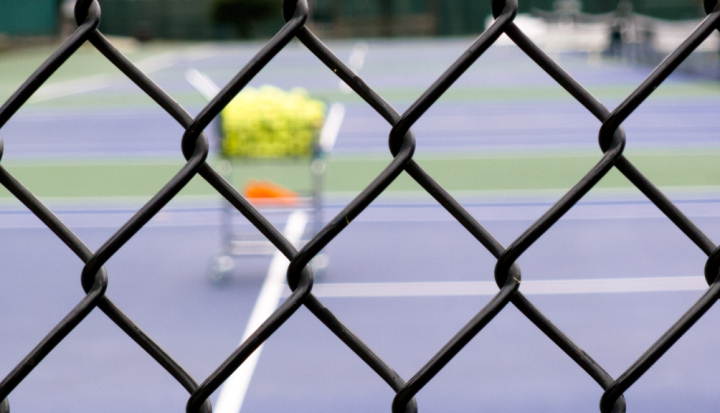When sexual abuse and homophobia rear their ugly heads, a positive youth sports culture can be part of the solution.
Clark Power founded Play Like a Champion Today in 2006 to help provide education for coaches, parents, and athletes to create a positive youth sports environment for all children. In this web-exclusive excerpt from his interview with U.S. Catholic, Power speaks about his experience with all kinds of abuse, and how he thinks a culture of abuse can be remedied.
How did the sexual abuse crisis in the church influence the work Play Like a Champion Today does in youth sports?
As a result of the abuse scandal, we now have mandatory training for abuse awareness and reporting, which is a great thing. We’re telling adults, people like me who are working with kids, to be aware of predators, which is good; you should be aware of them.
But on the other hand, there’s a lot of abuse—beyond sexual abuse—that is occurring in sports from youth through the college level that isn’t being addressed as it should be. Play Like a Champion is working hard to draw attention to all kinds of abuse in sports, including sexual abuse.
What are those types of abuse?
There are four kinds of abuse. This is standard fare, and this is what any abuse awareness program would talk about. We always start with sexual abuse.
The next one would be physical abuse. Physical abuse in sports could include any kind of pushing or striking a child. We’ve seen cases of adults putting on pads and tackling children. Another very common form of physical abuse that people haven’t been talking about would be “suicides,” where you have kids run back and forth, back and forth, back and forth. You do these sprints and, after a while, even the best conditioned athletes will break down. It’s not uncommon for athletes to be vomiting and cramping at the end of that exercise. That’s abuse. Now, sure, you can run for conditioning. It’s when you use the physical activity as a form of punishment to the point where you’re hurting someone that it crosses the line.
The other issue with physical punishment is, of course, that if sports are supposed to be play, we shouldn’t be doing that. In a pickup game, you wouldn’t punish other children for making a mistake. You were there to have fun. But in organized sports, children are working for adults. We have expectations and when kids fail to meet them, we feel we’re teaching them by punishing them.
The most common form of abuse in sports is psychological, verbal abuse. In any sport, you can easily undermine children’s confidence and sense of self‑worth. With boys, we hear this all the time. Coaches try to demean them by saying that they play like girls or they will use homosexual slurs. When Mike Rice at Rutgers was caught being abusive and using homosexual slurs on tape I said, “What’s new about this?” Mike Rice is being criticized for saying things that you can hear adults say to 10‑year‑olds. But Rice was caught on tape and we think, “Oh, it’s horrifying.” But coaches do that all the time.
With girls, there can be all kinds of comments made about them sexually, or about their appearance. That is very corrosive. I have met many parents whose children have experienced significant psychological damage because their coaches criticized their weight or appearance.
The fourth form of abuse is abuse by neglect. Here you have all kinds of incidents of children being injured and coaches telling them to play through the injury. This is hopefully going to come to a halt because, all of a sudden, we’ve discovered the seriousness of concussions.
Part of our Play Like a Champion education emphasizes that if someone has a head injury, or even the possibility of a head injury, you have to pull the kid from the game. You don’t let them keep playing, and you make sure that the child is cleared by a doctor. But it doesn’t have to be just a head injury. There are a lot of orthopedic injuries that are occurring. Kids are sustaining injuries and we have coaches saying, “Work through it. You have to work through the pain.”
You mentioned the use of homophobic slurs as part of bullying. How does Play Like a Champion address homophobia in sports?
Here at Notre Dame we recently had a varsity tennis player come out to his teammates. I brought it up in one of my classes right when it happened. We were discussing the tragedy Oedipus The King, which is all about trying to bring things to light, and the class asked what coming out really means. We’re taught psychologically that to face something—to be conscious of it and to be able to look at it—is healthier than to keep it buried. This young tennis player was really afraid of rejection from his parents and his teammates. He had already felt rejection from his church. “Some aspects of the church’s teachings were not exactly adding up with where my life was headed,” he said.
I was really struck by that. It’s interesting how we as a society are becoming more understanding about and accepting of homosexuality. It is clear to many committed Catholics that we still have to work on this issue as a church. We have to listen to our gay sisters and brothers and support them. This tennis player had tried to commit suicide and ended up in a hospital. He understood that he had to do something to give his life meaning. As he accepted his identity as a homosexual, he felt cut off from everyone and that all that he had left was tennis. Eventually he came out to his parents, and they accepted him. But he was still very anxious until he came out to one of his teammates at first, and then to his entire team. Once the team accepted him, he finally said, “Life felt good.” Then he dedicated himself to reaching out and helping others, which is a wonderful story.
Play Like a Champion has focused a lot on bullying, and much of the bullying we see today is directed towards homosexuality and involves homosexual slurs. We want coaches to be aware of how vulnerable children and adolescents are as the grapple with their sexual identities. We are also making an effort to inform coaches about depression and the importance of establishing a compassionate and accepting team environment. We are trying to be as up front about this as possible: You’re working with kids who are still constructing their identities psychologically. You can’t allow other children to bully them or make fun of them.
Play Like a Champion is about sports; it’s physical. Our sexuality is part of who we are physically. I hope we can try to understand all of this in a more loving and sensitive way. I congratulated the tennis coach here at the university and he said, “It’s not me, it’s my players.” I said I felt really proud as a member of this Notre Dame community. This is who we are and this is what we’re supposed to be a church. We’re called to be a loving community. We should be setting an example of how to support and affirm all persons, particularly in the most formative stages of their development.
This is a web-only sidebar that accompanies “For love of the game: Emphasizing justice in youth sports” which appeared in the September 2014 issue of U.S. Catholic (Vol. 79, No. 9, pages 22-26).
Image: Flickr photo cc by alans1948













Add comment